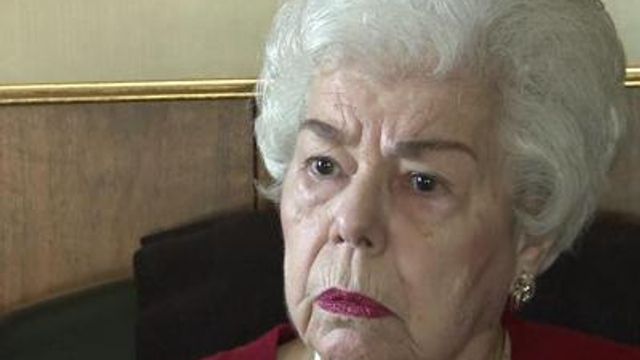Roanoke Rapids grandparents hoaxed out of $1,800
Harry Fishel, 81, and Grace Fishel, 88, said they initially a call they received Wednesday was their grandson in trouble and in need of quick cash.
Posted — UpdatedHarry Fishel, 81, and Grace Fishel, 88, said they initially thought a call they received Wednesday morning was from their grandson, Daniel Fishel. The caller told them he was in South Carolina and had hit a car owned by a driver in Spain and needed the money to send to Madrid.
"I said, 'Hi, Daniel. How are you?'" Grace Fishel said of the phone call. "He said, 'Grandma, I'm in a little bit of trouble.'"
He went on to tell her that he had also been drinking and was in jail and urged her not to call "his parents." The caller then coached the couple on how to wire the money using Western Union.
"The voice was exactly like his," Grace Fishel said. "There was never any doubt in my mind."
The couple sent the money overseas, they said, only to be contacted again by the man saying he needed more.
That's when they became suspicious and contacted the Roanoke Rapids Police Department.
The North Carolina Attorney General's Office, which recently produced a guide on how to avoid common scams, said that 84 people last year reported being swindled out of nearly $650,000 in the so-called grandparent scam.
Roanoke Rapids Police Capt. Andy Jackson said the Fishels' story is like two other cases reported in the city in the past week. In another case, the victim knew it was a scam because she doesn't have a grandson.
"A lot of times, these suspects are able to go fishing for information," Jackson said. "A lot of times, they'll use Facebook."
It's unclear how the caller found the Fishels and knew details that led them to believe he was their grandson.
Jackson said that it is always best before sending money in unexpected situations like the Fishels', to try to confirm their story.
Authorities recommend calling back or sending an email to the caller using his or her established contact information or checking with other friends and family members about the purported caller's whereabouts.
If that's not possible, another recommendation is asking for personal information about the family, such as the name of a family pet or a significant family event.
When in doubt, Jackson said, contact law enforcement for advice. In the Fishels' case, he said, police could have checked to confirm if the grandson were in jail.
Harry Fishel said he initially suspected something wasn't right about the phone call he and his wife received, but didn't say anything.
It's unlikely that they will get their money back – police say it's difficult to track such cases.
The couple said they want their experience to be a cautionary tale for others.
"I'm thinking that a retired couple, like we are, aged, like we are, are prime targets for a scam," Grace Fishel said.
• Credits
Copyright 2024 by Capitol Broadcasting Company. All rights reserved. This material may not be published, broadcast, rewritten or redistributed.





